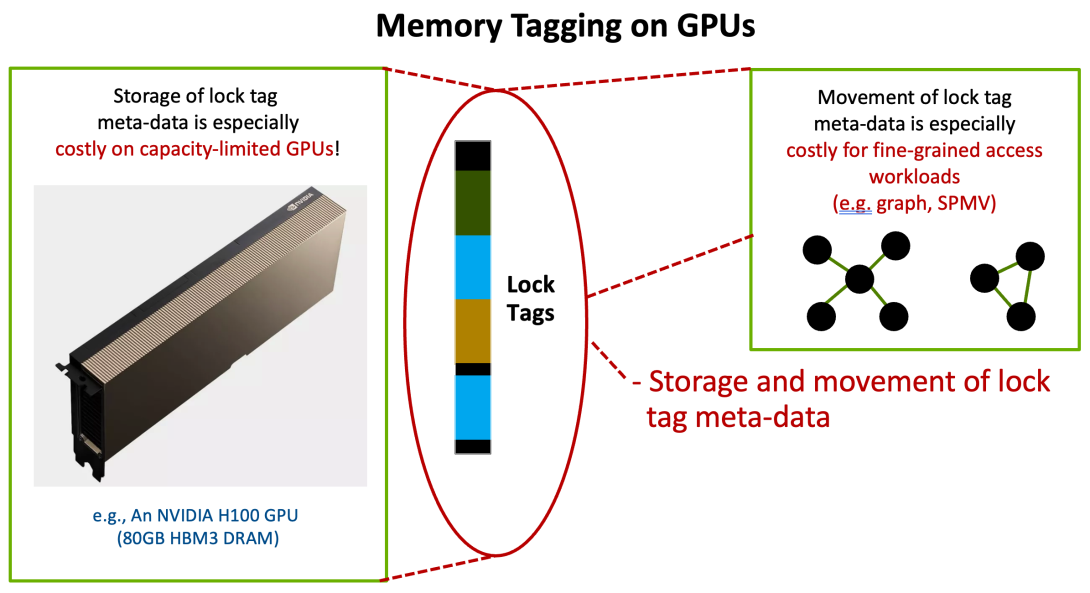Implicit Memory Tagging: No-Overhead Memory Safety Using Alias-Free Tagged ECC

Memory safety is a major security concern for unsafe programming languages, including C/C++ and CUDA/OpenACC. Hardware-accelerated memory tagging is an effective mechanism for detecting memory safety violations; however, its adoption is challenged by significant meta-data storage and memory traffic overheads. This paper proposes Implicit Memory Tagging (IMT), a novel approach that provides no-overhead hardware-accelerated memory tagging by leveraging the system error correcting code (ECC) to check for the equivalence of a memory tag in addition to its regular duties of detecting and correcting data errors. Implicit Memory Tagging relies on a new class of ECC codes called Alias-Free Tagged ECC (AFT-ECC) that can unambiguously identify tag mismatches in the absence of data errors, while maintaining the efficacy of ECC when data errors are present. When applied to GPUs, IMT addresses the increasing importance of GPU memory safety and the costs of adding meta-data to GPU memory. Ultimately, IMT detects memory safety violations without meta-data storage or memory access overheads. In practice, IMT can provide larger tag sizes than existing industry memory tagging implementations, enhancing security.
Publication Date
Research Area
External Links
Uploaded Files
Copyright
Copyright by the Association for Computing Machinery, Inc. Permission to make digital or hard copies of part or all of this work for personal or classroom use is granted without fee provided that copies are not made or distributed for profit or commercial advantage and that copies bear this notice and the full citation on the first page. Copyrights for components of this work owned by others than ACM must be honored. Abstracting with credit is permitted. To copy otherwise, to republish, to post on servers, or to redistribute to lists, requires prior specific permission and/or a fee. Request permissions from Publications Dept, ACM Inc., fax +1 (212) 869-0481, or permissions@acm.org. The definitive version of this paper can be found at ACM's Digital Library http://www.acm.org/dl/.
